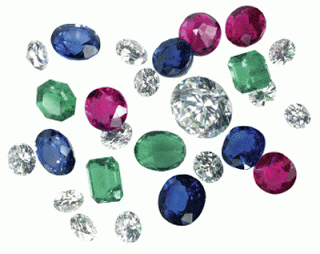Matthew Reinhart's Blog, page 16
May 19, 2011
Word of the Day: Mephitic
1. Offensive to the smell; as, mephitic odors.
2. Poisonous; noxious.
Origin: Mephitic is the adjective form of mephitis, "a foul-smelling or noxious exhalation from the earth; a stench from any source," from Latin.

May 18, 2011
I Spy: S-L-O-W J-E-L-L-O
It has been a while since we shared and "I Spy" post but everyone at the studio was so mesmerized by this video that we had to share it. This high speed video of gelatin cubes bouncing on a mirror surface is brought to us from the mad geniuses of Modernist Cuisine. I usually reserve 'poetry in motion' for pop-up books and maybe figure skaters but we think this takes the cake. JELL-O turns out to have an interesting origin story - created by industrialist, inventor and philanthropist Peter Cooper. That same scientific approach to food is repeated years later by the folks who developed the amazing videos and photography for their six-volume reinventing of cooking. I can't tell if I am drooling over the Jell-O or these books.
~Kyle
History Lesson: Patent for Blue Jeans is granted
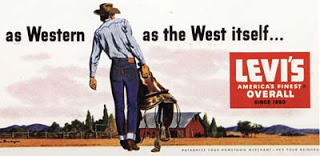
Word of the Day: Embonpoint
1. Plumpness of person; stoutness.
Origin: Embonpoint is from French, literally means "in good condition" (en 'in' + bon 'good' + point 'situation, condition')

May 17, 2011
Weekly Beast: Honey-Pot Ants
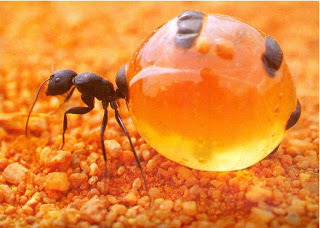
Artist Watch: Aurora Andrews
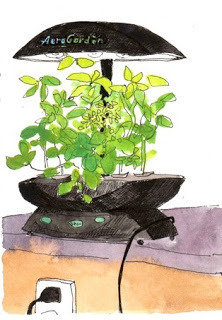
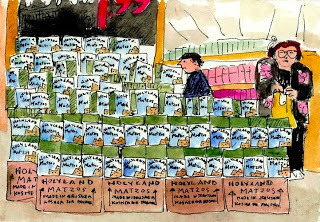

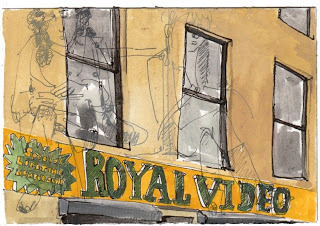
Word of the Day: Lexicography
1. The writing or compiling of dictionaries; the editing or making of dictionaries.
2. The principles and practices applied to writing dictionaries.
Origin: Lexicography is derived from the Greek lexicon (biblion), a word- or phrase-book (from lexis, a phrase, a word)+ graphein, to write.

May 16, 2011
Whats Popped Up: Carter Cards
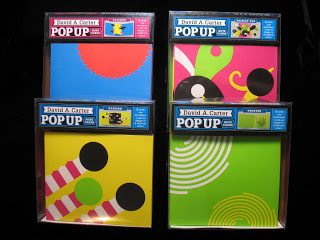
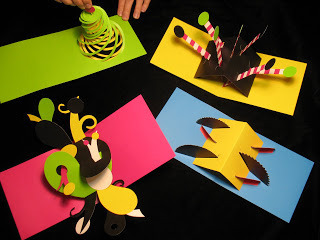
@font-face { font-family: "Cambria"; }p.MsoNormal, li.MsoNormal, div.MsoNormal { margin: 0in 0in 0.0001pt; font-size: 12pt; font-family: "Times New Roman"; }a:link, span.MsoHyperlink { color: blue; text-decoration: underline; }a:visited, span.MsoHyperlinkFollowed { color: purple; text-decoration: underline; }div.Section1 { page: Section1;
David A. Carter is no stranger to this blog. I have tremendous respect for the man and he is a delight to be around. The studio recently came across an assortment of his pop-up cards and they were quickly snatched up. These 5" x 6" cards were designed in 2008 and published by Clarkson Potter (better known for their cookbooks and lifestyle titles) and produced by Millenium in China. I believe there are eight different designs with names like: Dots & Spots, Curlycue, Blossoms, Wave, Kaboom, Clicker, Paisley and Twister. Many of the compositions will be familiar to fans that followed the One Red Dot series. Each set contains a single design in four different colors printed on eight cards with colored envelopes. The cards have a universal appeal and are wordless, which allow the pop-ups to be used in a variety of occasions. The packaging mentions that the designs are influenced by the works of Matisse, Calder and Gehry among others and remember to pester him more about some of the hidden meanings and inspiration in his work. It also notes that David has authored over 70 pop-up books, so it looks like I have to start looking into more of his back catalog and find some of his earlier works, which may show up on this blog in short order.
~Kyle
Giveaway Update
Please check the comment board to see if your entry is still there. If not, you may enter again and we'll make sure that we have a record of the entry. Good luck to you all!
Word of the Day: Lapidary
1. Of or pertaining to the art of cutting stones or engraving on them.
2. Or or pertaining to the refined or terse style associated with inscriptions on monumental stone.
noun
1. One who cuts, polishes, and engraves precious stones.
2. A dealer in precious stones.
Origin:
Lapidary is from Latin lapidarius, "pertaining to stone," from lapis, lapid-, "stone".
